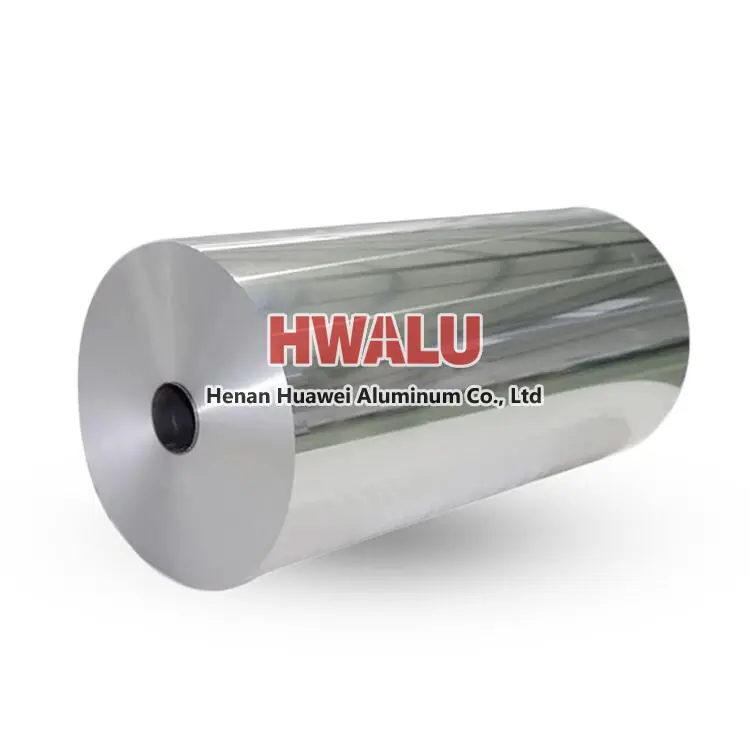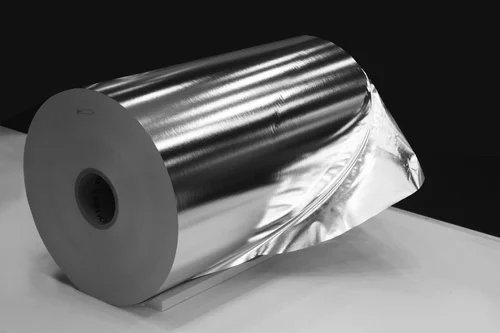Countries and regions where HWALU aluminum foil is sold well Asia: China, Japan, India, Korea, Malaysia, Vietnam, Indonesia, Thailand, Philippines, Singapore, etc. North America: United States, Canada, Mexico, etc. Europe: Germany, UK, France, Italy, Netherlands, Poland, Spain, Sweden, Switzerland, etc. Oceania: Australia, New Zealand, etc. Central and South America: Brazil, A ...
What is aluminum foil for wrapping Aluminum foil for wrapping is a thin, flexible sheet of aluminum that is commonly used for wrapping food items or other objects for storage or transportation. It is made from a sheet of aluminum that has been rolled out to a desired thickness and then processed through a series of rollers to give it the desired strength and flexibility. Aluminum foil for wrapping is availabl ...
What is house hold aluminium foil? Household Aluminium Foil ( HHF ) has many special characteristics: rich polish, lightweight, anti-damp, anti-pollute and is the well transmit electricity body. It has been used vastly in the shield layer of the food vessel, electron, material equipment, and communication cable. We can supply aluminum foil thickness from 0.0053-0.2mm, and width from 300-1400mm. Alloy includes 80 ...
What Is Food Packaging Aluminium Foil Roll 8011 As we all know, aluminum foil is widely used in our daily life, especially in the field of food packaging. Aluminum foil roll 8011 is a common food packaging material. 8011 aluminum alloy is a high-quality aluminum alloy with good ductility, strength and corrosion resistance. This type of aluminum foil is commonly used for food packaging. 8011 aluminum fo ...
what is Pure aluminum foil? Aluminum that is 99% pure or higher is called pure aluminum. Primary aluminium, the metal produced in an electrolysis furnace, contains a series of "impurities". However, in general, only iron and silicon elements exceed 0.01%. For foils larger than 0.030 mm (30µm), the most common aluminum alloy is en aw-1050: pure aluminium foil with at least 99.5% aluminium. (Aluminum larger tha ...
Aluminum foil for kitchen parameters Surface Teatment: One side bright, another side dull. Printing: coloured gold, rose gold Embossed: 3d pattern Thickness: 20mts, 10 mic, 15 micron etc Sizes: 1m, 40*600cm, 40x100 cm etc Characteristics and uses of kitchen aluminum foil Aluminum foil is a versatile and commonly used kitchen item that offers a range of benefits for cooking, food storage and othe ...
It is a characteristic of aluminum box rolling that the thickness deviation is difficult to control. The thickness difference of 3% is not difficult to control in the production of plate and strip, but it is more difficult to control in the production of aluminum foil. As the thickness of the aluminum box becomes thinner, its micro-conditions can affect it, such as temperature, oil film, and oil and gas concen ...
Since aluminum foil has shiny and matte sides, most of the resources found on search engines say this: When cooking food wrapped or covered with aluminum foil, the shiny side should face down, facing the food, and the dumb side Glossy side up. This is because the glossy surface is more reflective, so it reflects more radiant heat than matte, making the food easier to cook. Is it really? Let's analyze the heat ...
0.03mm thick aluminum foil, which is very thin, has a variety of potential uses due to its properties. Some common applications of 0.03mm thick aluminum foil include: 1. Packaging: This thin aluminum foil is often used for packaging purposes such as wrapping food items, covering containers, and protecting products from moisture, light, and contaminants. 2. Insulation: It can be used as a thin layer of insul ...
Aluminum foil is a versatile material with a wide range of uses across various industries and households. Here are some common uses of aluminum foil: Packaging: Aluminum foil is widely used in packaging applications. It is used to wrap food items, such as sandwiches, snacks, and leftovers, to keep them fresh and protect them from moisture, light, and odors. It is also used for packaging pharmaceutical products ...
hot ingot rolling First, the aluminum melt is cast into a slab, and after homogenization, hot rolling, cold rolling, intermediate annealing and other processes, it is continued to be cold rolled into a sheet with a thickness of about 0.4~1.0 mm as a foil blank (casting → hot rolling billet → cold rolling → foil rolling). In the ingot hot rolling method, the hot rolled billet is first milled to remove defect ...
Aluminum foil is often colloquially referred to as "tin foil" due to historical reasons and similarities in appearance between the two materials. However, it's important to note that aluminum foil and tin foil are not the same thing. Here's why aluminum foil is sometimes called "tin foil": Historical Context: The term "tin foil" originated at a time when actual tin was used to create thin sheets for wrappin ...









